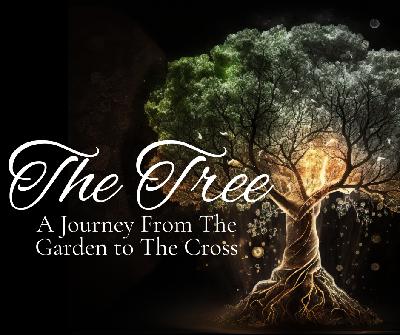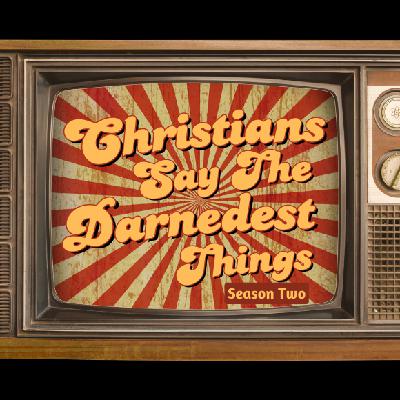Tangible Faith
Description
What we know of James is that he and his brothers did not believe that his half-brother and the oldest of his siblings was all that He claimed to be (John 7:5). It most likely was not until after Jesus’ resurrection that James finally did believe. However, based on what we read in these verses, I am curious if James was present when Jesus preached His sermon on the mount? James seems to be the sermon on the mount applied to life.
I can’t prove it, but I believe James 1:19-27 is the first four beatitudes applied to life. Think about the first four beatitudes (Matt. 5:3-6):
- “Blessed are the poor in spirit, for theirs is the kingdom of heaven.”
- “Blessed are those who mourn, for they will be comforted.”
- “Blessed are the gentle, for they will inherit the earth.”
- “Blessed are those who hunger and thirst for righteousness, for they will be satisfied.”
Permit me to share some of my initial takeaways from James 1:19-27 and then share how the first four beatitudes fit into these verses.
- Each of us live with a nature that we wish we did not have to contend with. For some, it is lust. For others, it is anger. If it is not lust or anger, it is something else. When it came to lust and anger, Jesus told us in His Sermon on the Mount to take radical action to fight against such sins that come from within (see Matt. 5:21-30). The apostle John wrote of our struggle with sin: “If we say that we have no sin, we are deceiving ourselves and the truth is not in us. If we confess our sins, He is faithful and righteous, so that He will forgive us our sins and cleanse us from all unrighteousness” (1 John 1:8-9). It would really be great if we didn’t have to wrestle and contend with our sin though!
- God’s Word promises us that our fight with sin can be won with the Word of God. In fact, the battle with sin is first won or lost in the mind; listen to 2 Corinthains 10:3-5, “For though we walk in the flesh, we do not wage battle according to the flesh, for the weapons of our warfare are not of the flesh, but divinely powerful for the destruction of fortresses. We are destroying arguments and all arrogance raised against the knowledge of God, and we are taking every thought captive to the obedience of Christ.” James states, “ridding yourselves of all filthiness and all that remains of wickedness, in humility receive the word implanted, which is able to save your souls” (James 1:21 ). You cannot win against your sin apart from the Word of God.
- To believe the Bible to be the Word of God is good, but you cannot progress and grow in your relationship with God if you do not act upon His Word as it is contained in the Bible. The only way to move forward in your faith as a Christian is to hear the Word of God and then act upon the Word of God by doing what it tells you to do. In the case of James 1:26-27, you have not really heard the Word of God if it has not affected your speech (v. 26). You have not really heard the Word of God is you are not looking for ways to love others. It is not enough to believe what the Bible says about the damage your words can do, the only way you will be able to start addressing the problem of your tongue is to, in the words of James, “bridle his tongue” (v. 26).
What God Has Said is More Important Than Your Feelings (vv. 19-21)
We live in a world filled with people who are slow to hear, quick to speak, and at the flip of a switch... explode with anger. We easily respond to the wounding of our pride with anger. Ecclesiastes 7:9 says of angry people: “Do not be eager in your spirit to be angry, for anger resides in the heart of fools.” If Ecclesiastes is true, and I believe that it is, then we live in a nation of fools. There is a righteous anger that ought to be felt and at times expressed, when necessary, but the kind of anger we see all around us has more to do with feeling triggered, hurt feelings, and whatever entitlements we think belong to us. We will look at James 4:14 later in this sermon series, but for now, we are told: “Come now, you who say, ‘Today or tomorrow we will go to such and such a city, and spend a year there and engage in business and make a profit.’ Yet you do not know what your life will be like tomorrow. For you are just a vapor that appears for a little while, and then vanishes away.”
What is uncomfortable about the epistle of James is that it forces us to consider the simple reality that all of us are here one moment and then we are gone. You may have 76 years like Ozzy Ozborne or 71 years like Hulk Hogan, or... you may only have until tomorrow! The question James wants us to ask and that he answers is this: What are you chasing after and why? Why are you so slow to listen? Why are you so quick to speak? Why are you quick to get angry?
This is why Jesus started his sermon on the mount with the first step towards the life you were born to experience: “Blessed are the poor in spirit, for theirs is the kingdom of heaven” (Matt. 5:3). To be “poor in spirit” is to recognize just how far short you fall from being right before the only One who matters—namely God. To be “poor in spirit” is to recognize that you cannot help yourself. To be “poor in spirit” is to be fully aware that you need a righteousness that you cannot generate.
If you are genuinely poor in spirit, you will mourn over the sin that offended a holy God, alienated you from Him, and is the reason for the mess that is your life. There is no coming to God unless you see your sin for what it really is, and if you see it for what it is, then you will come to him with the very keen awareness that your only hope is outside of yourself.
If you really do mourn over your sin while aware that you need God to do the saving, then you will be meek. The choice of the NASB to translate “praus” to gentle in Matthew 5:5 was a poor discission by the translators. Every other major version of the Bible translates this world “meek” or “humble.” To be see yourself for what you really are, and if you see yourself for what you really are, you will not be too impressed with yourself.
So, James states in verses 21, “Therefore, ridding yourselves of all filthiness and all that remains of wickedness, in humility [prautēs] receive the word implanted, which is able to save your souls.” The word James uses in verse 21 for humility comes from the same root that Jesus used in His third beatitude! If you received the word, you received the gospel. If you received the gospel, you have been born again and the power that raised Jesus from the grave, is the same power that now resides in you in the person of the Holy Spirit who indwells and seals you (see Eph. 1:13-14; 3:20-21).
How do I address the filthiness and wickedness that remains in me? Be quick to hear what the Word of God says about it, keep your mouth shut by accepting it, and instead of responding in anger, respond in humility. Who cares about your feelings, what you ought to really care about is what has God said and why does it matter?
What God Wants to Do in Your Life is Greater than What You Know (vv. 22-25)
If I understand the Christian life and how it is that God brings change in our lives, it seems to me that for God to accomplish what He needs to in my life, He must wound my ego by exposing my thoughts and the intentions of my heart. James exhorts us in verse 22, “But prove yourselves doers of the word, and not just hearers who deceive themselves.” The author of Hebrews said of the Word of God: “For the word of God is living and active, and sharper than any two-edged sword, even penetrating as far as the division of soul and spirit, of both joints and marrow, and able to judge the thoughts and intentions of the heart” (Heb. 4:12 ).
What James states in verse 19 is primarily how it is that God uses His word in the lives of His people to live and finish well. Why does God want this for your life? Well, again, in verse 18, God used His word (the gospel) so that we can become born again, “so that we would be a kind of a first fruits among His creatures” (v. 18). Here is the thing about first fruits: The Israelites were commanded to give God the first fruits of their crops which was the best of their crops. If you are a Christian, you are God’s first fruits, which means you are of great value to Him, and what He wants for you is to thrive as His child!
If you are a Christian, then it is true that you, at one time, arrived at the cross of Christ as one who was poor in spirit, one who mourned over your sin, and one who died to the any notion that you were able to save yourself by laying down your pride to embrace the cross of Christ as the only hope of your salvation and redemption. So what has changed since then? Not a thing! The evidence that the gospel has germinated and taken root in your life is that you are still poor in spirit, that you still mourn over











